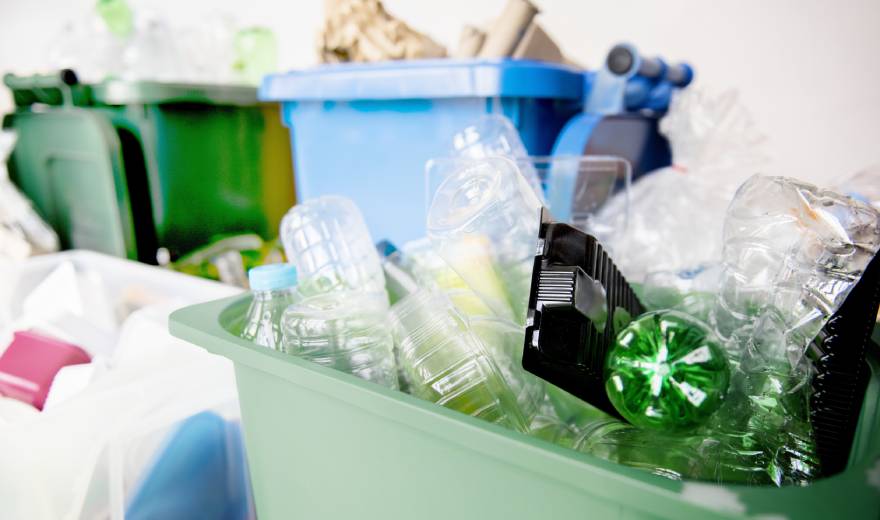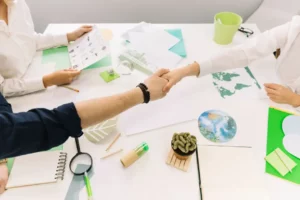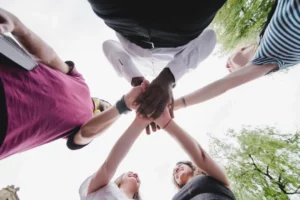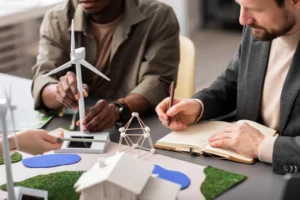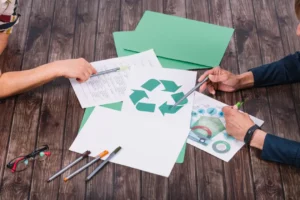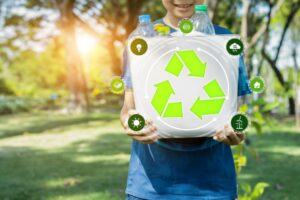Recycling is a vital part of sustainable living, but it can be frustrating when we’re not sure what to do with items that aren’t accepted in our blue bins. While many people know the basics of recycling paper, plastic, and metal, other materials like electronics or batteries require special handling.
Luckily, there are plenty of options available for responsible disposal if you know where to look. In this article, we’ll explore some creative ways to recycle items that don’t belong in your curbside bin. From repurposing old clothing to finding collection programs for hazardous waste, we’ll cover everything you need to know about eco-friendly disposal methods.
Here are a few tips and tricks that will make you feel confident knowing that even the most unusual items can find their way into the circular economy.
Understanding The Importance Of Recycling
Recycling is like a dance, one that we must all learn to move with grace and purpose.
It’s not just about tossing items into the blue bin; it’s about understanding why recycling matters in the first place.
Recycling helps reduce waste, conserve resources, and protect our planet for future generations.
By reusing materials instead of letting them sit in landfills or pollute our environment, we can create a more sustainable world.
But recycling isn’t just an individual effort – it requires collective action from everyone in society to make a real impact.
So let’s join hands and take this step towards preserving our planet!
Identifying Items That Can’t Be Recycled In Blue Bins
While recycling is an important step towards reducing waste, not all items can be recycled in blue bins. It’s essential to identify these materials and dispose of them properly.
One example of non-recyclable material is plastic bags as they can clog the machines at recycling facilities.
Moreover, styrofoam and food-contaminated products are also not accepted in blue bins. These items need to be disposed of separately or taken to specialized recycling centers.
Proper disposal of non-recyclable materials will prevent contamination and ensure that recyclable items have a higher chance of being processed correctly.
Finding Specialized Recycling Centers
If you have items that cannot be recycled in your blue bin, don’t worry! There are specialized recycling centers that can help. These facilities accept a wide range of materials, including electronics, batteries, light bulbs, and hazardous waste.
To find these centers, start by checking with your local government or waste management agency. They should be able to provide you with information on where to take specific items. You can also search online for recycling centers near you or use apps such as iRecycle or Earth911 to locate facilities.
Remember to check the hours of operation and any fees associated with dropping off your items before heading out. By utilizing these specialized recycling centers, you can ensure that even hard-to-recycle items are responsibly disposed of and kept out of landfills.
Tips For Safe Disposal Of Hazardous Items
After finding specialized recycling centers for items that cannot be placed in blue bins, it is important to know how to safely dispose of hazardous materials.
These types of items should never be thrown in the trash or poured down the drain as they can harm people and the environment.
Instead, look up local hazardous waste collection events or facilities where trained professionals can properly handle and dispose of these materials.
Some common household hazardous waste includes batteries, electronics, pesticides, cleaning products, and fluorescent light bulbs.
By taking the time to research safe disposal methods for these items, we can all do our part in protecting ourselves and our planet from harmful chemicals.
Spreading Awareness And Encouraging Community Involvement
While it may be frustrating to learn that certain items cannot be recycled in our blue bins, there are still ways to responsibly dispose of them.
Spreading awareness about the proper disposal methods for these materials can be a great way to encourage community involvement and reduce waste.
Consider reaching out to your local government or waste management company to see if they offer any programs or resources for recycling non-traditional materials.
You can also research alternative recycling centers or drop-off locations in your area.
Additionally, consider reducing your consumption of single-use plastics and other non-recyclable materials whenever possible to minimize the amount of waste you generate.
By taking proactive steps and encouraging others to do the same, we can all work towards creating a more sustainable future together.
Conclusion
Recycling is important for our environment and it’s important to understand how to properly dispose of items that can’t be recycled in blue bins. By identifying these items and finding specialized recycling centers, we can make a positive impact on the planet.
One way to think about this process is like putting together a puzzle. Each piece represents an item that needs to be disposed of correctly. Just as you wouldn’t force a puzzle piece into the wrong spot, we shouldn’t force non-recyclable items into blue bins.
Instead, let’s take the time to find the correct place for each item so that we can complete the puzzle of sustainability and protect our planet. Let’s continue spreading awareness and encouraging community involvement in proper recycling practices.
Together, we can make a difference!

